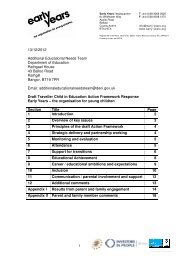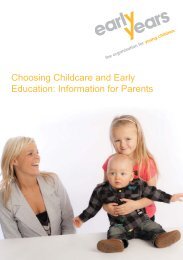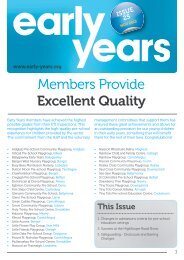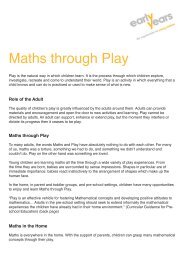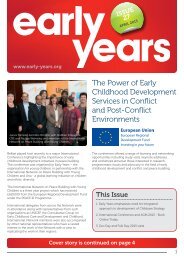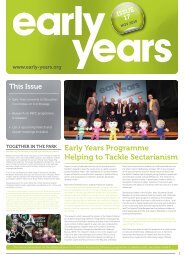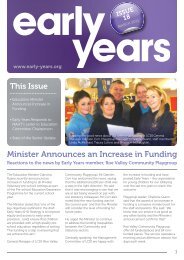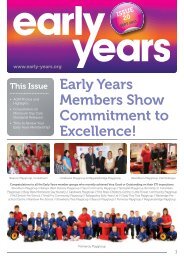Learning from Nine Examples of Peacebuilding Evaluation
Learning from Nine Examples of Peacebuilding Evaluation
Learning from Nine Examples of Peacebuilding Evaluation
You also want an ePaper? Increase the reach of your titles
YUMPU automatically turns print PDFs into web optimized ePapers that Google loves.
Case Study 3: Search for Common Ground: Social Transformation<br />
through Television in Macedonia<br />
Summary<br />
After five years <strong>of</strong> television programming in Macedonia, Search for Common<br />
Ground (SFCG) piloted a combination <strong>of</strong> evaluation and research tools<br />
– surveys, the formation <strong>of</strong> a control group, and the mapping <strong>of</strong> change.<br />
Willing and able to experiment with its methodology, SFCG was able to design<br />
a rigorous survey model, collect data <strong>from</strong> an adequate sample, and<br />
analyze data in such a way that the gaps in the program’s social change<br />
design were clearly identified and enabled the organization to apply new<br />
learning to its future programming.<br />
Overview<br />
Organization<br />
Founded in 1982, Search for Common Ground works to transform the way<br />
the world deals with conflict - away <strong>from</strong> adversarial approaches and towards<br />
collaborative problem solving. Using a multi-faceted approach,<br />
including media initiatives and work with local partners, SFCG works at all<br />
levels <strong>of</strong> society to find culturally appropriate means to understand a society’s<br />
differences and act on the commonalities.<br />
Program Evaluated<br />
21<br />
Nashe Maalo, or “Our Neighborhood,” was a television series produced by<br />
SFCG-Macedonia aimed at promoting inter-cultural understanding among<br />
children with a view to transform conflict. The program ran <strong>from</strong> October<br />
1999 to December 2004. All forty-two 30-minute episodes focused on the<br />
daily lives <strong>of</strong> eight children <strong>from</strong> Macedonian, Roma, Turkish, and Albanian<br />
ethnic groups, who live in the same neighborhood. If shifts in consciousness<br />
and ‘value-identities’ can be influenced via portrayals <strong>of</strong> salient social identities<br />
on a wide-scale through television programming, then mass attitudes<br />
will shift toward building a culture <strong>of</strong> peace.<br />
<strong>Evaluation</strong> Strategy<br />
To analyze rigorously the effects <strong>of</strong> Nashe Maalo on the conflict, and not just<br />
concentrate on the delivery <strong>of</strong> the intended outputs, the evaluation team innovated<br />
a new methodology to deal with multiple intended outcomes and<br />
the ever-growing pressure to know the contribution these made to the broader<br />
conflict, regardless <strong>of</strong> whether or not the program delivered its intended<br />
outcomes. The methodology was designed to assess impact, in spite <strong>of</strong> an<br />
absence <strong>of</strong> a thorough baseline study.<br />
The final evaluation combined two research approaches. The first included a<br />
representative sample survey (1202 children <strong>of</strong> the age <strong>of</strong> 8-15 interviewed,



